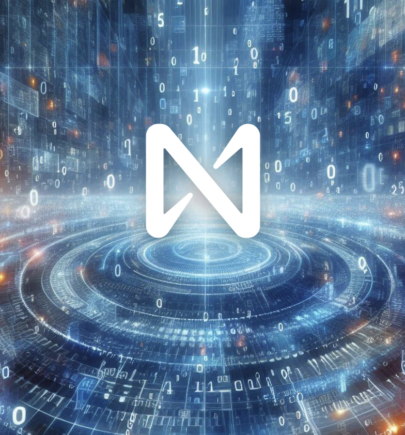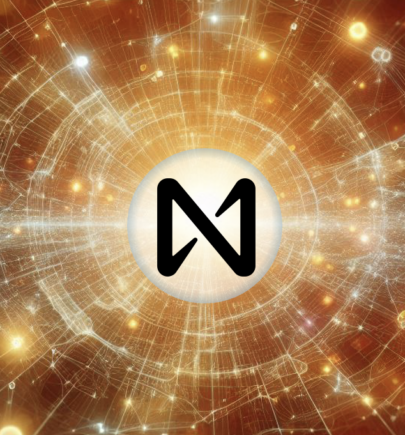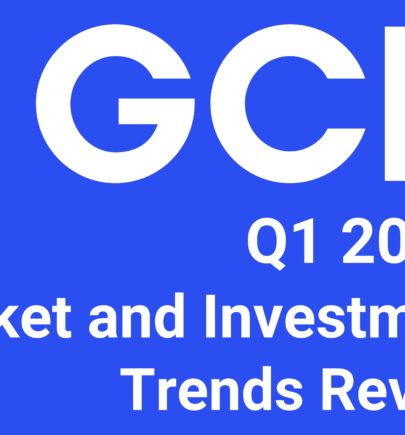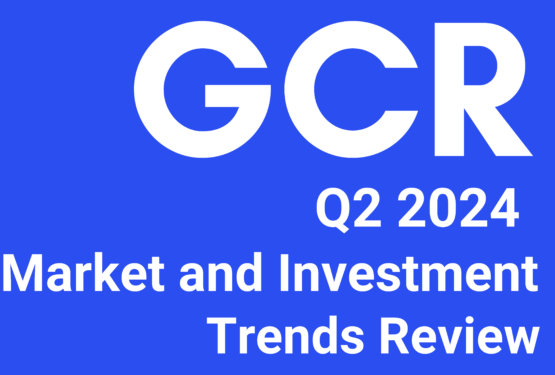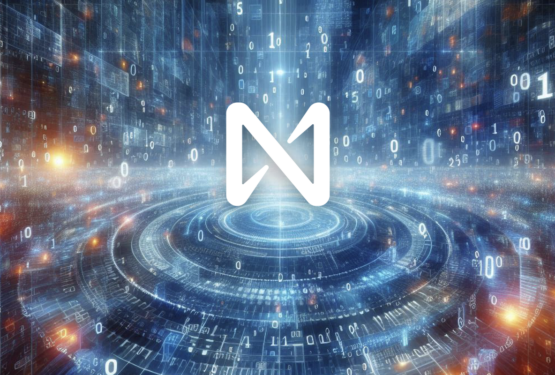A Wechat Interview with Omer Ozden, China and US Legal Expert

On China and US Crypto Regulations from a “Chinese” Legal Expert and Investor – A special interview from Omer Ozden, CEO of Rocktree capital and partner of DFund, a Chinese Venture Capital and Crypto Fund. We’ve highlighted some interesting parts from the interview.
Omer is the founder of Rocktree Capital, and also the legal partner of DFund and the oversea advisor for Zhenfund (another Chinese Venture Capital and Crypto Fund). He has been in China since he was 21, since 1991. Omer has witnessed first hand the internet boom in China and now the crypto boom, and he has a very unique take between what is happening legally between the US and China.
Omer was formerly a managing partner at Baker Mckenzie and worked at the Private Equity arm of Beijing’s government fund, and now lives in Beijing.
[Self Introduction]
Omer Ozden?Hello everyone?One of my best skills is my vision and the ability to spot trends. What will happen in the future. I did this with a lot of areas, such as Internet, New Oriental, Co-Working (UCommune [a Wework equivalent in China] Youke Gong Chang), and a lot of deals in New York where we were pioneers, and because of that, were successful.
When I first came to China, I could immediately see what the future of the world was going to be. I could see the direction the Chinese government was leading China. I could see how hard Chinese people work and Chinese ambition. And I could see the qualities of the culture that can make China successful and have advantages. None of the Western people I knew understood China. They thought it was KungFu and Panda Bears. But I could see from 1991 what was going to happen and so I went all in.
Definitely, my background in Finance and Law does very well in New York. But China, and for me, Beijing, is where the real action is. The real ambition and the real growth. I always want to be at the center of the action.
Sometimes doing business in China is difficult…… especially for a LaoWai (foreigner). You need friends to do business here. And you need to work very hard and be sharp. But my strategy has not been to make money in China, but rather to help Chinese make money overseas. I help Chinese get technologies and assets from overseas. I help Chinese get capital overseas. I help Chinese expand overseas. I help Chinese internationalize and become local overseas.
I see many current trends in Blockchain. One is that more and more good people are entering it. For example, more and more successful talent from the equity world of IPOs is entering. The future of Blockchain is that it will become more regularized, meaning more professional and regulated.
Another trend is that governments are regulating Blockchain more. Some are regulating by enforcement. This means, regulating by charging people, fining them or even arresting them. This is not good.
But more regulations is good because things become clear. And as the regulations become more clear, then the institutional groups will enter such as the institutional investors enter and bigger and bigger money comes into the market.
More regulation = more quality people and more money. The big investors all need comfort from more regulation.
Currently, we see a liquidity problem in the crypto space, especially over the past 2 months. This is a problem. As more regulation comes out and more institutional investors come in, this will increase liquidity.
[Q&A portion]
1. Coming to China in the 90s, how was it like?
Omer: I came to China because I could see it’s future very early on. I could see the direction the Beijing government was taking China, and how hard the people were working and how ambitious people were. Not too many foreigners came to China in 1991.
There has never been anytime in the history of the world where a market has risen like China has over the past 30years. How can I not be a part of this? How can I sit in the West and just watch it happening on TV or in the newspaper? No, my heart demands me to be a part of it and be at the center of it.
I am very very lucky I noticed it was happening and I very very lucky I was a part of that, and even in my own humble way, contributed in a very small way to China’s growth and want to continue to contribute to China’s growth how I can.
And hopefully, we can all contribute. What is good for China, especially in technology, is good for Chinese, and for the entire world. That is Blockchain culture.
For Blockchain, what we do in Beijing, will impact people from Bangkok to Berlin to Boston……..
People in the US say that strong legal compliance will double to triple the value of a blockchain company. This I totally agree with that.
For Blockchain, legal compliance means getting listed on better exchanges. It means investment from better and more institutional investors. So yes, it will be double to triple (2X to 3X) the valuation of a Blockchain project.
For Internet companies in China, legal complaints were the difference between a valuation of Multi-Billions of Dollars versus a Zero. Because the government shut down illegal internet companies in China. And the investors who did DD on Internet projects….if they saw they were not legally compliant, they would not invest.
And so the Internet companies that didn’t pay attention to the law, couldn’t get more money. And they died. The ones who did…… we worked on those companies. NETEASE, ALIBABA, BAIDU
2. Can you tell us more about the difference between utility tokens and security tokens? And the legality around security tokens?
Omer: This area is an area that is gaining central importance in Blockchain. I worked with experts in the United States to prepare a 109-page report for the US Congress, the SEC and the CFTC on Utility Tokens. We just released and submitted it this week.
RockTree was the only expert group from China/Asia to participate in preparing the report.
The report was to show the government how to understand Utility Tokens. and the best way to regulate them…. best way to generate Utility Tokens and best way to distribute Utility Tokens. Our next report to the US Congress and SEC will be about SECURITY TOKENS.
To understand the type of token, we need to look at (1) it’s purpose,(2) how it’s generated, and (3) how it is distributed. These are the factors the government looks at to know if it’s Utility or Security.
The simplest way to understand is Utility has a USE to access a product or service.
The simplest way to understand SECURITY is that it is an investment in a business where you expect to make money because of other people’s work.
So to issue a Security Token and sell it publicly………. you know what that is called? It’s called Shang Shi (IPO). IPO requires a lot of clear disclosure and government approval.
I have worked on 65 IPOs before. https://simpliolabs.com And our team at RockTree has in total worked on 100 IPOs all together. IPOs are hard to do! They require a lot of work.
I am not going to get too technical here, and just keep things simple, so I am not going to get into (2) how it is generated, and (3) how it is distributed. Just to say, this matter. For example, if you distribute a token through “Air Drop” in the US, the SEC might say that your token is a security, because of the way the Token was distributed. But without those complications, let me just give a simple example.
Let’s say Apple issues Apple Coin. With Apple Coin, you can buy an iPod, and iPhone, and also pay for ITune services, plus many other things. Plus Apple can pay some bonus to its employees in Apple Coin.
And the Apple Coin can be used for other things too. This is a Utility Token. The Apple Coin can be traded….. let’s say, for Huawei Coin?and for Nike Coin?and Samsung Coin.
If the market really likes Apple Products, more people want the Apple Coin to use them?That means the value of Apple Coin goes up. The holders of Apple Coin benefit. Not like a stock market. The purpose of Utility is for use. You can trade your AppleCoin for Samsung Coin
If Samsung Coin can only buy one thing, Samsung TVs,…… then not too many people want the Samsung coin and the price goes down.
Apple Stock, which is listed on Nasdaq, is a SECURITY. Maybe Apple programs Apple Coin to only buy ONE type of Apple Product…… an iPad. Then not that many people want Apple Coin.
RockTree focuses on GLOBAL BLOCKCHAIN. Not just one country. So we have to know all the major markets. For Blockchain, it’s important to understand that Law = Technology. Just as computer code in Blockchain is changing and evolving, so is the law.
3. How do you get a project to trade on an exchange? What are your criteria for choosing a project?
Omer For RockTree, and for DFund, the most important thing we look at is the TEAM. The Team is the most important for a successful case. We do a lot of Angel investments with ZhenFund too. Angel investing and Blockchain are very similar because they are both early stages. Xu Xiaoping and Wang Qiang’s [Zhenfund] best strength is being able to evaluate how strong the TEAM is. A strong team also means a professional team. Professional execution is very important for success.
4. Is it compliant for projects that have only a Singapore Foundation? Why does everyone have a foundation, is the foundation a symbol of compliance?
Omer: The foundation structure for Blockchain was invented by a law firm in Switzerland called MME. The lead lawyer, in January this year, came out and called the Foundation structure “Stupid, outdated, and inflexible”. Foundations now have more problems. Last year, in Asia, people just copied the Swiss Foundation model. But Now MME and others are not using the Foundation model too much because of the risks.
The top projects now do not use Singapore Foundation to issue the token. We say in Blockchain, LAW = TECHNOLOGY. Because the laws are always changing and the legal structures are being advanced….. just like computer code technology. Use other countries to issue tokens. It’s safer. We use MANY countries for every project. Depending on the activity. For issuance of Token, we like Cayman, or other offshore jurisdictions.
5. China, Singapore, Japan, Thailand…they have all banned ICO. Do you agree with this?
Omer?Singapore did not ban ICO. Japan did not ban ICO. Japan requires approval to do it. China banned ICO, it’s true. But in the 1990s, foreign Investment in Internet companies was banned. But we created the VIE (variable interest entity) structure. Before my team invented the VIE structure in 2000, there were still foreign investors investing in Chinese internet companies…. but it was not legal. We worked with Chinese government and SEC to make it legal, for NetEase, Alibaba and Baidu.
If no foreign investment in Chinese internet in the 1990s, then we would not have the great things we have today…..like WaiMai (takeout)…. like Dache (taxi). Even some guys would not be able to find girlfriends without strong internet. This was helped by Law. I believe China will open up more flexibility to Blockchain in the future.
6. 1. Do you think ICO is strongly related to blockchain? 2. If not, then why so many tokens are released today? 3. Do you think that some tokens are really there to cheat money? 4. Will there be regulations on future ICOs and punishment on passed fraudulent ICOs?
Omer: Tokens are very sensitive. But tokens are a KEY part of blockchain. It’s the Tokens that get people to use Blockchain technology. You can’t separate it. It’s like saying No Internet Site for the Internet. You need internet Sites for Internet. Otherwise, you just have email and some internet protocol that no one uses. Its the content on the site that motivates people to use the internet….which makes the technology grow. It’s the tokens that motivate people to use Blockchain and make the technology grow. That’s the purpose of tokens. To Use.
Tokens are not stocks like stock market….that’s not real utility token. It’s true, a lot of ICOs are used to cheat people. But many good projects out there too. We see more and more good projects now….because more and more smart people are coming into the market. Now, some governments are looking to REGULATE THROUGH ENFORCEMENT, meaning, they will go after the cheaters on ICO projects. They will enforce the laws to stop the cheaters. RockTree Lex philosophy is to do your best to obey the laws. to be legally compliant. You can’t always be perfect. But try your best.
7. I think many people like me want to find a chance to work in a good company like yours. Does your company have any job openings recently?
Omer?Yes we are looking to hire someone right now! We are looking to hire a PR manager. We are looking for Jiu Ling Hou (a girl who is born post 90’s).
8. What advice do you have for Chinese blockchain investors?
Omer: My advice is to invest in projects with strong teams who pay attention to the law. The top investors will NOT invest in companies that do NOT pay attention to the law. The team has to be serious about Long Term growth and execution of project. Otherwise, it’s just GeJiuCai (cutting chives).
At Rocktree Lex, we are creating the future Ma Yuns (Jack Ma) and Li Yan Hongs (Robin Li, CEO of Baidu) and Ding Leis (CEO of Netease). We are helping the future top companies establish their roots. With strong structures for future growth. We know the formula for success. We did it already.
We know the formula for success because we already went through this process before for Internet. Now doing for Blockchain in China!
(excerpts extracted and edited by Global Coin Research from 499 Blockchain Ladies)


